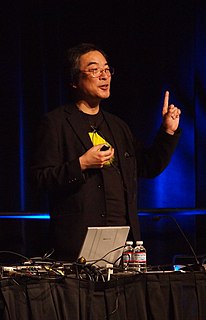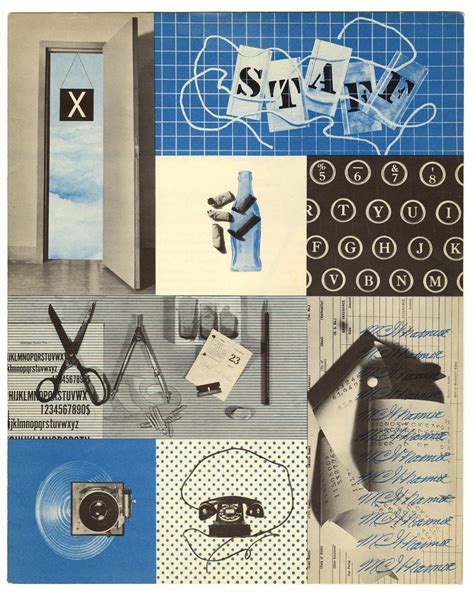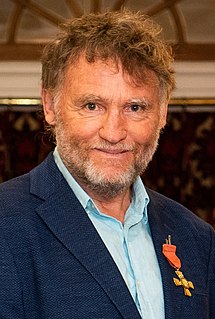A Quote by John Sculley
I never claimed to be a computer engineer, but I did train as an industrial designer, and I am a consumer marketer, and I am very comfortable dealing with complex businesses and complexity in general and simplifying it - basically a systems designer.
Related Quotes
People have a hard time accepting free-market economics for the same reason they have a hard time accepting evolution: it is counterintuitive. Life looks intelligently designed, so our natural inclination is to infer that there must be an intelligent designer--a God. Similarly, the economy looks designed, so our natural inclination is to infer that we need a designer--a government. In fact, emergence and complexity theory explains how the principles of self-organization and emergence cause complex systems to arise from simple systems without a top-down designer.
The words graphic designer, architect, or industrial designer stick in my throat, giving me a sense of limitation, of specialisation within the specialty, of a relationship to society and form itself that is unsatisfactory and incomplete. This inadequate set of terms to describe an active life reveals only partially the still undefined nature of the designer.
The products we design are going to be ridden in, sat upon, looked at, talked into, activated, operated, or in some way used by people individually or en masse. If the point of contact between the product and the people becomes a point of friction, then the industrial designer has failed. If, on the other hand, people are made safer, more comfortable, more eager to purchase, more efficient-or just plain happier-the industrial designer has succeeded.
I have been called an eco-designer simply because I use wood. But I am not an eco-designer, nor does the use of wood make me one. I am a designer who cares about the effect of what I do, and about making good things for people to keep and cherish - that, surely, is simply the basic condition for 'good design'?
How a designer gets from thought to thing is, at least in broad strokes, straightforward: (1) A designer conceives a purpose. (2) To accomplish that purpose, the designer forms a plan. (3) To execute the plan, the designer specifies building materials and assembly instructions. (4) Finally, the designer or some surrogate applies the assembly instructions to the building materials. What emerges is a designed object, and the designer is successful to the degree that the object fulfills the designer's purpose.
Andrew Preston and I moved to Florida, to get some air. Am I going to live there forever? No, I'm not. But I have a warehouse, all white, concrete floors, a big, big space with very high ceilings and nothing inside. And that's where I go to work, and I like that because I just like to be alone and quiet. Is it explainable as a typical fashion designer? No. But am I a typical fashion designer? I don't think so.



































